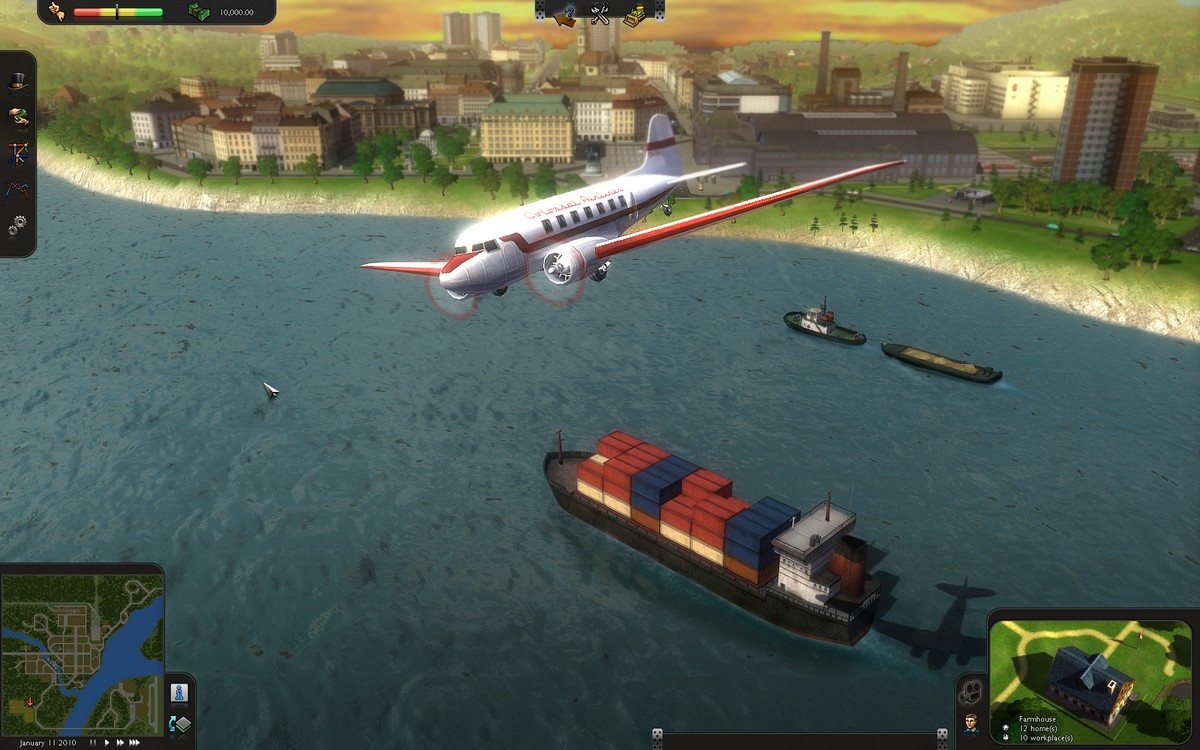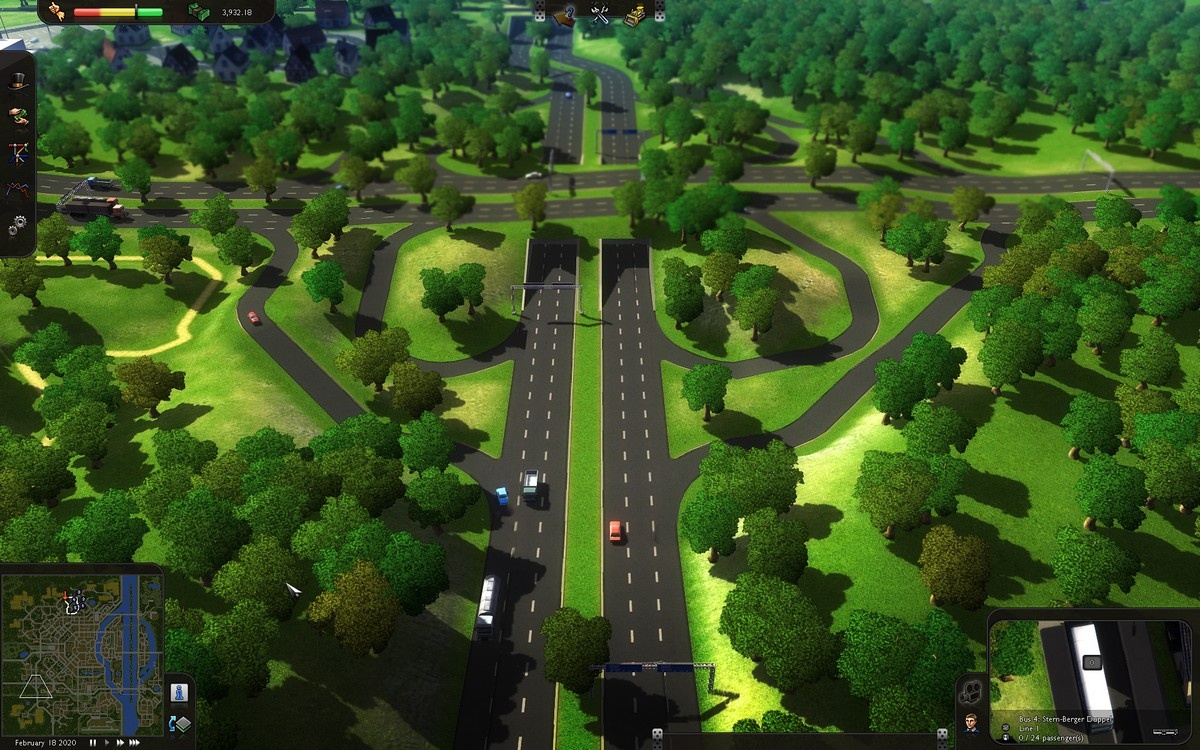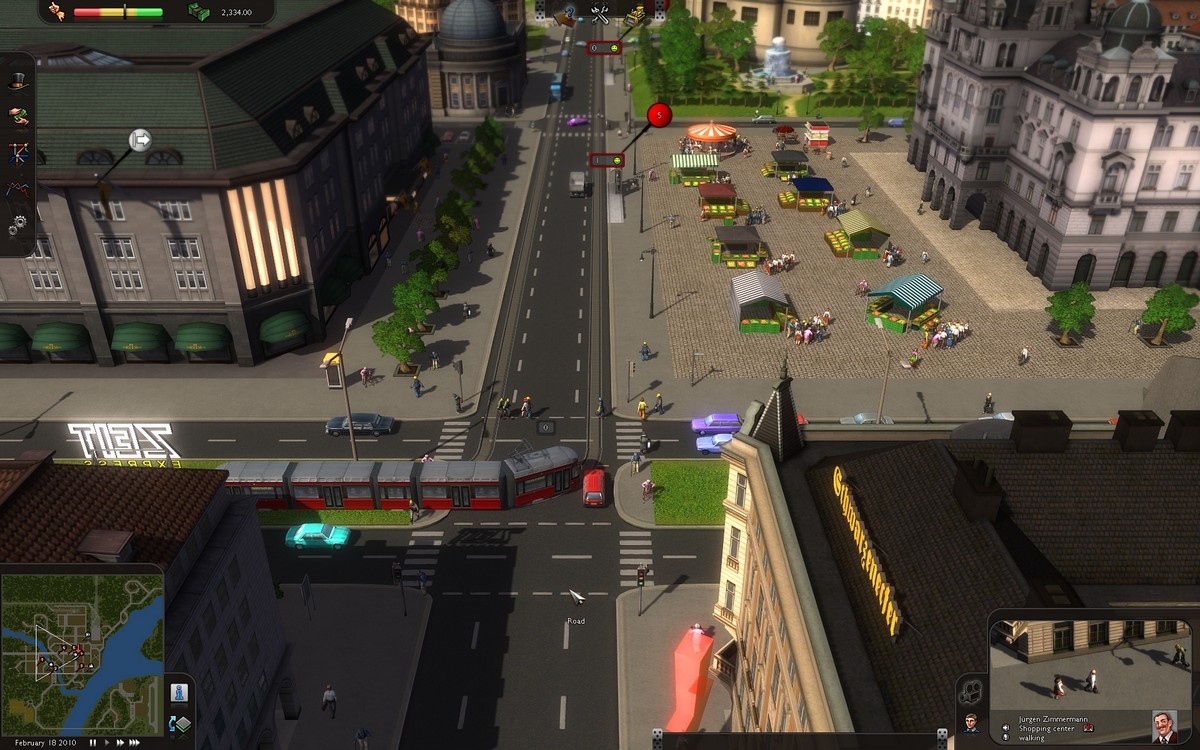Cities in Motion Q&A - Planes, Trains, and Automobiles
Colossal Order CEO Mariina Hallikainen discusses how you, too, can become a transport tycoon in this upcoming strategy game.
Cities in Motion will be a city-management game where you don't manage the city. Instead, you manage the town's transportation network during the course of 100 years, where conventional technology starts with jalopies and evolves into bus lines, sleek railways, and arguably the most practical and eco-friendly transportation of all: the personal helicopter. Mariina Hallikainen of developer Colossal Order explains.
GameSpot: Give us an overview of the game. We understand that it's about managing the transit system in an entire city--what are the most important parts of this job?

Mariina Hallikainen: Cities in Motion is a public-transport simulation game for the PC. There's a timeline of 100 years and four different exciting cities that grow over time, including Amsterdam, Berlin, Helsinki, and Vienna. The transportation network can be built with buses, trams, helicopters, water buses, and the metro, which has an underground view. In total, there are more than 30 different vehicles to choose from.
Players act as the chief of the transportation company, building and managing their network. The most important task is to get to know the transportation needs of the citizens and to build a public-transport network that is efficient and profitable by choosing the right routes and vehicles. Adjusting wages and ticket prices, as well as marketing and maintaining the vehicles, are also part of the experience.
GS: Tell us about the different transit options that will be available in the game. How are they different from each other? What are some of the primary advantages and disadvantages among them?
MH: In Cities in Motion, there are five different types of transportation. The buses are a good choice to start your business since they are the cheapest option--just place the stops, buy a bus, and start the line! Unfortunately, buses can only use the existing roads and might get stuck in the traffic. The trams and the metro require for you to build the tracks first; these are more costly yet faster and therefore more attractive for citizens. Though the underground metro is the most expensive to build, it won't be affected by the traffic and is always a reliable choice.
Then, we have water buses and helicopters. We call these the special vehicles. Water buses are excellent for avoiding the traffic and especially handy when transporting the citizens of Amsterdam. They are a bit slow but not too expensive. Helicopters are available in the modern times and businesspeople love it! They're fast and attractive, though buying one might make you consider visiting the bank first.
GS: We understand that the game will span an entire century. Tell us about how transit technology will change during this time period.

MH: You'll see the evolving technology in the different vehicles that are available in different times. You will start from the 1920s with slower and smaller vehicles but soon notice that newer and better models become available all the way to the 2020s. You will need the bigger capacity of the newer vehicles because as the city evolves, there are more people to transport. The biggest change is that the helicopter will be available from the 1950s; other types of transportation can be put into use from the start. We had so much fun designing the vehicles, from old classic models to the shinier modern ones. We hope people enjoy them!
GS: Aside from new types of transportation being invented throughout the 20th century, what else will change during the course of the game? The needs of the citizenry? Economic changes? Perhaps climate or environmental changes due to pollution?
MH: The city itself grows bigger, so you'll start to notice the countryside disappearing and new suburbs building up. There are more citizens to carry, and you might find them dressing and acting a bit differently in the modern times than in the early times. Or you might spot them driving a newer car. The economy fluctuates during the century and challenges you to react by adjusting your employees' wages and the ticket prices, for example.
GS: Will there be any random events that affect the city periodically, such as those in the SimCity series?
MH: We really wanted the cities to come alive and have random events happening around the city, but nothing too severe though. For example, some demonstrations or small car accidents might cause a traffic jam, therefore adding to the challenge.
GS: What game modes are planned for the game? Campaign? Sandbox? Challenge missions? Any plans to include editing tools right out of the box?
MH: Cities in Motion has a Campaign mode that consists of 12 different scenarios. In the campaign, you'll visit the four different cities at different times and will be given objectives, like modernizing the existing transportation network or making it suitable for a huge event where a lot of tourists are expected to visit the city.
In the Sandbox mode, you'll have a choice between the four cities and the starting year. In this mode, you'll be free to build your transportation empire from scratch! Cities in Motion also comes with a map editor that lets you build your own cities to play in.
GS: Finally, is there anything else you'd like to add about the game?

MH: Cities in Motion is our first game at Colossal Order, and developing it is absolutely wonderful and exciting. We really love the classic games of the genre, like Transport Tycoon and Traffic Giant. These games were an inspiration for us, and we hope that you'll find Cities in Motion as addictive and fun to play!
GS: Thank you.
Got a news tip or want to contact us directly? Email news@gamespot.com
Join the conversation